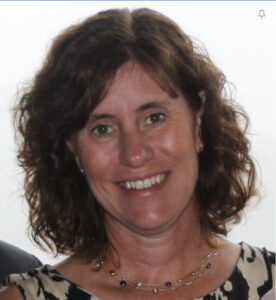For nearly a decade now, Colorado government leaders have been asking employers to consider bringing students into their companies for apprenticeships and internships. Now they have a new request to those same employers: Please make time for teachers as well.
The Colorado Department of Labor and Employment is launching a teacher externship program through which instructors at K-12 schools could spend time within companies to understand what skills they need from students entering the workforce. The program’s first leader believes it particularly could benefit employers in growing scientific and technical sectors like quantum computing in that it would let educators learn their needs and incorporate them into lessons.
Spawned from a 2023 law, the program is part of a push from Gov. Jared Polis — a push that’s being greeted warmly by a growing number of business leaders — to boost experiential learning as a vehicle to match students to potential careers. Currently, there are more than two job openings for every unemployed Coloradan, but many employers say jobseekers lack the talents they need, leaving companies unable to expand and younger workers particularly unable to launch into sustainable careers.
Why the state wants to promote externships
Teachers who get into workplaces can understand better how students get prepared to work in those careers and can incorporate some of the skill development into their curricula, said Kelly Reeser, CDLE’s teacher externship grant specialist. The program remains largely undefined: Externships could last for several days, several weeks or whatever period employers feel is most beneficial, as the state just wants to get it up and going to see how helpful it can be to both employers and instructors.
“I think it’s a workforce pipeline development strategy. It is a way to build a bridge between education and the industries so that you can have a direct relationship that can be fruitful in both ways,” said Reeser, a former charter-school education director. “It’s a chance to influence curricula that is directly being taught to students … Businesses can better get the things they really want to be taught in front of teachers.”
The focus of the programs will be STEM professions — science, technology, engineering and math sectors that could include bioscience, health care, construction, advanced manufacturing, aerospace, computer programming and more, Reeser said. And while participating teachers could come from the ranks of high schools directly preparing students for careers, she’s gotten a lot of interest already from elementary-school teachers who want to start imparting lessons about potential career paths like cybersecurity or artificial intelligence.

Kelly Reeser is the teacher externship grant specialist at the Colorado Department of Labor and Employment.
How the externships will work
Participating businesses ideally would be able to offer externships during the summertime when teachers don’t have to balance their classroom teaching with their new learning, Reeser said. Her office will help with details from scheduling to potential activities in which the externs can participate and can even assist with any nondisclosure agreements that companies with proprietary products or information can ask participants to sign.
One challenge that Reeser acknowledged is the lack of funding that was included in House Bill 23-1198, meaning that she would hope businesses bringing on these part-time additions could offer somewhere in the range of $25 to $35 per hour. In addition to getting a chance to teach the teachers, prospective externship hosts also have the opportunity to get a new perspective on their own operations from seasoned professionals, she noted.
“Teachers who go through this can see things in a new way and help to solve problems,” Reeser asserted. “They’re very good at collaborating and being part of a team.”
The goal for the first year of the program is to find at least 10 businesses to host a cumulative total of 20 externs, though Reeser said that she would like to boost those totals once the structure and benefits are proven. While she already has gotten interest from quite a few teachers in the program, she only has about a half-dozen businesses on board right now and hopes to expand that number.
How businesses can welcome teachers
Businesses can inquire for more details or apply to be a part of the externship program at the program’s website. While those externships may not take place until June or July, Reeser said she would like to get commitments in place by the end of this month.
Polis is expected to introduce a package of workforce-development bills this week that attack the talent shortages in many industries through myriad ways. Those bills will include tax credits to get more employers to offer apprenticeship, a framework for creating regional talent-development plans, expansion of the Opportunity Now grant program and infrastructure needed for creation of a longitudinal data system to help students and policymakers which education and training programs work best.
Externships may be just one cog in the overall framework of the state’s workforce-development push, but they are a uniquely low-cost attempt to break down the silos that too often exist between businesses and the educational system. And Reeser is willing to let participating employers help to mold the program — just as long as they are willing to host externs who can be both learners and contributors.
“The teachers are just flocking to it, and I’ve got to find some businesses who are willing to get in here,” she said. “Getting this off the ground, I’m casting a wide net to have as few restrictions as possible.”
